Conformal map of rectangle to ellipse
The previous post looked at what the sine function does to circles in the complex plane. This post will look at what it does to an rectangle.
The sine function takes a rectangle of the form [0, 2] * [0, q] to an ellipse with semi major axis cosh(q) and semi minor axis sinh(q).
The image of horizontal lines
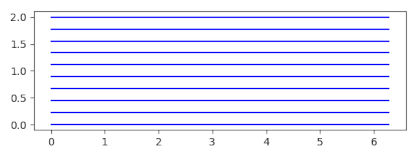
is a set of concentric ellipses.
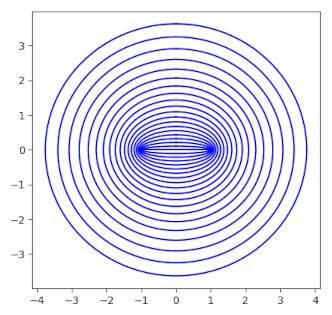
The sine function almost maps the interior of the rectangle to the interior of the ellipse.
If we add vertical lines to the rectangle
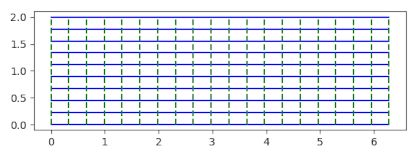
the results are a little puzzling.
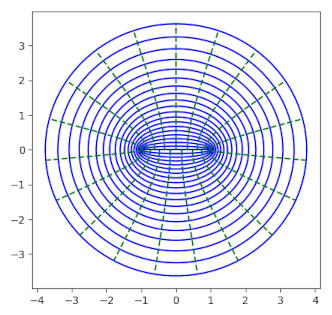
The images of the dashed green vertical lines seem broken in the ellipse. Their images above the real axis don't line up with their images below the real axis. This isn't easy to see on the edges, but you can see it in the middle. There are 20 green lines in the preimage but 19 in the image. That's because sine maps both vertical edges of the rectangle to the same line segment in the image.
It will be clearer if we make our rectangle slightly narrower, changing the base from [0, 2] to [0, 6].
Now notice the split in the image;
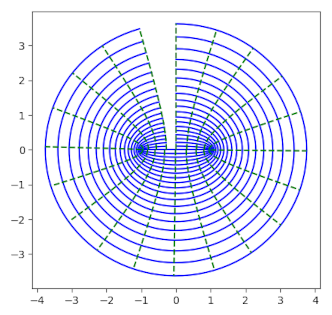
Now we can see what's going on. Sine doesn't distort the rectangle into an ellipse from the inside out, not like the map between a circle and an ellipse. Instead it maps the left edge of the rectangle along the imaginary axis, then bends the rectangle around the real axis clockwise, then back around the real axis.
So sine conformally maps the interior of the rectangle, the open rectangle (0, 2) * (0, q) to the interior of the ellipse with a couple slits removed, one slit along the positive imaginary axis and another slit along the real axis from -1 to 1.
So how would you map the interior of a rectangle to the interior of an ellipse with no slits? For the special case of a square, you could compose the maps from two previous posts: map the square to a disk, then map the disk to an ellipse.
Related postsThe post Conformal map of rectangle to ellipse first appeared on John D. Cook.